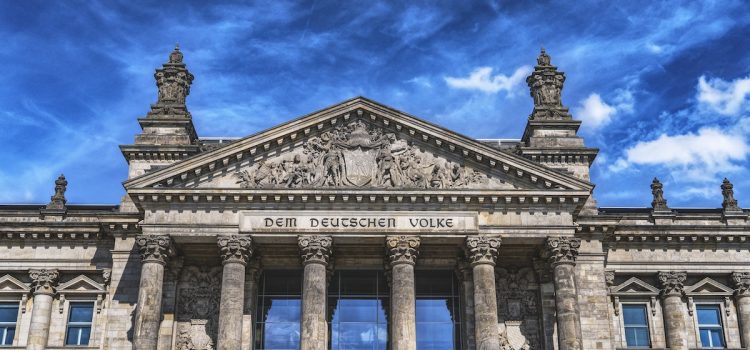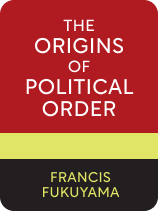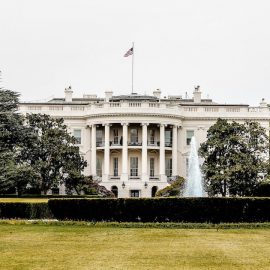

This article is an excerpt from the Shortform book guide to "The Origins of Political Order" by Francis Fukuyama. Shortform has the world's best summaries and analyses of books you should be reading.
Like this article? Sign up for a free trial here.
In political science, what’s a state? What are its distinct features? How is it different from a tribe?
Francis Fukuyama argues that a stable democratic society requires a strong state. He identifies five characteristics that a state has: a strong central authority, a stratified class system, a complex religion, a composition based on territory, and the centralized and exclusive control of police and military forces.
Let’s take a look at the definition and the features of a state, according to Fukuyama.
Definition of a State
A strong state is fundamental to any form of government. It’s entirely possible to have a strong, stable government with no rule of law or accountability. But, without a strong state, a country remains a collection of disparate groups with no real political unity. Before we review Fukuyama’s features of a state, we’ll define what is meant by “state.”
| Defining Terms: What Is a State? Defining a “state” is challenging. Terms like “state,” “government,” “country,” and “nation” are used somewhat interchangeably in everyday conversation. Also, within political science, experts disagree on the exact definitions of these terms. For the sake of clarity, here’s how we use these terms in this guide: • State: As mentioned earlier, a state is an organization that wields centralized legal power over a defined territory. • Government: A government consists of the specific bodies and institutions through which a state exercises its power. • Country: A country is a specific geographical territory with defined political borders. • Nation: A nation is a grouping of people defined by shared cultural factors such as language, religion, or history. Sometimes, all four of these terms apply to a single entity. For example, France consists of the French state, whose power is shared between a president, prime minister, and various representative bodies that make up the government, which in turn rules over a defined territory (the country) that’s populated by the French people (the nation). But not all political situations are so straightforward. For example, the United Kingdom is a state made up of four countries (and nations)—England, Northern Ireland, Scotland, and Wales—that come together to form a single government. Meanwhile, according to a 2006 resolution in the Canadian Parliament, the people of Québec form a distinct nation within the country of Canada (a nation that’s still subject to the Canadian state and government). |
Features of a State
Fukuyama outlines several distinctive features of a state:
1) A strong central authority such as a monarch, president, or prime minister. A state is organized around this central figure, whereas tribes retain the decentralized, familial structures also found in kinship groups.
(Shortform note: Though Fukuyama doesn’t explicitly say so, we can infer that state formation also coincides with a shift from norms to laws as a means of governing behavior. In The Elephant in the Brain, Simler and Hanson explain that norms are standards that are collectively enforced by group members, whereas laws are rules that are enforced by a central authority, such as a monarch or her government officials. The authors argue that in early human societies, norms actually resisted any one person seizing control of the group—presumably, with the emergence of the state, those anti-authoritarian norms gave way to an acceptance of centralized order.)
2) A stratified class system consisting of the leader, an elite ruling class, and any number of hierarchical divisions below these groups. In general, states introduce inequalities that aren’t present in tribal societies.
(Shortform note: Fukuyama doesn’t explain why states tend to stratify, but one possible explanation has to do with division of labor. In Sapiens, Harari argues that when humans lived in foraging bands, people probably didn’t have specialized roles—everyone had to know basic skills like how to make and mend tools or heal injuries. But tribal societies divided into at least two classes—farmers and warriors. Similarly, Harari suggests that as tribal societies grew bigger, the need for improved organization and planning led to the emergence of a ruling class to direct the rest of society. The stratification and specialization found in modern states may simply be an extension of these early specializations.)
3) More complicated religion and a separate clerical class. These more advanced forms of religion often serve to legitimize the political order (for example, by proclaiming that a monarch is ordained by God). Meanwhile, the move away from ancestor worship contributes to the depersonalization of the state as compared to the tribe.
(Shortform note: In Homo Deus, Harari argues that this advancement of religious belief resulted from the invention of writing. He explains that religious texts (as opposed to oral traditions) allowed for more complex belief systems as well as the standardization of religious beliefs and practices across large populations. These advancements allowed the new religions to unify and impose structure on much larger and more diverse populations than earlier tribal religions could.)
4) Composition based on territory rather than kinship. Whereas tribes are built around an extended sense of family, states are impersonal. They’re defined by borders rather than by ancestry.
(Shortform note: Similarly, political theorist Anna Stilz argues that states aren’t based on shared cultural identity—ancestral or otherwise—but on territorial jurisdiction, which includes the right to define and control the borders of a territory. In fact, Stilz argues that national identity (that is, a sense of a “people” with a shared cultural and political identity) exists only after the inhabitants of a territory have been ruled by a state for a time.)
5) Centralized and exclusive control of police and military forces. When a territory is divided among several tribes, each tribe retains its own decentralized bands of warriors in order to defend its interests. In a state, the military directly serves the central government rather than individual warlords. This allows a state to enforce its laws and defend and expand its borders.
(Shortform note: Fukuyama’s description of a modern state is an expansion of sociologist Max Weber’s definition of the same. Fukuyama acknowledges this influence from Weber, but never actually gives Weber’s definition. In a 1919 essay, Weber defined a state as an entity that holds a monopoly on the legitimate use of physical force. In other words, for Weber, a state is by definition that which controls the police and the military and can therefore enforce its own laws within its territory.)

———End of Preview———
Like what you just read? Read the rest of the world's best book summary and analysis of Francis Fukuyama's "The Origins of Political Order" at Shortform.
Here's what you'll find in our full The Origins of Political Order summary:
- What modern democracy is and where it came from
- The three components a stable democratic society requires
- Three important takeaways from Fukuyama's book






